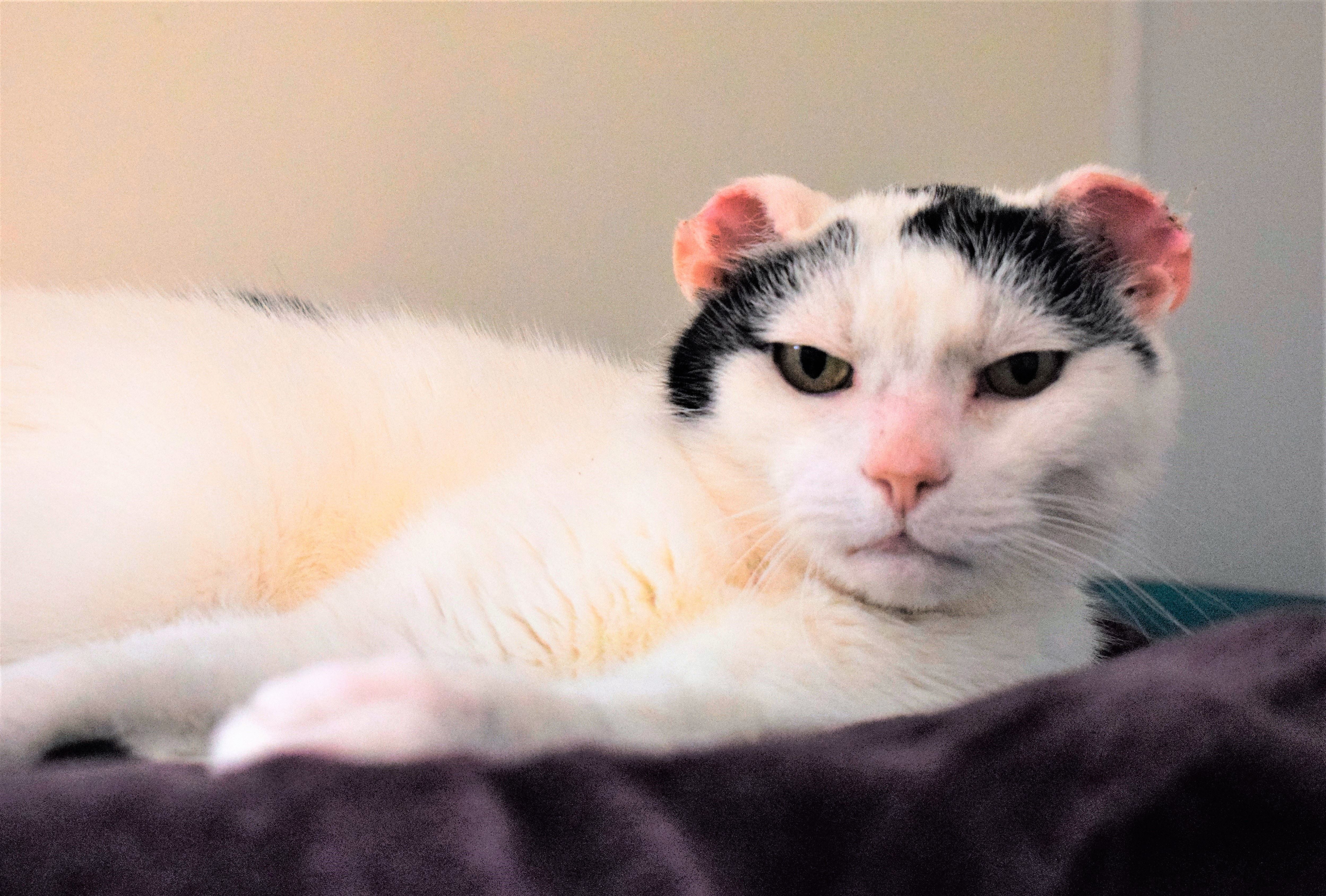4th May 2021
One-year-old Smurf, five-year-old Aapa and 15-year-old Fluff were recently brought to different Cats Protection adoption centres with sunburnt ear tips that had turned cancerous and which had to be removed.

 Though all three cats have now recovered and have new homes, the charity is keen to make cat owners aware of the potential risks.
Though all three cats have now recovered and have new homes, the charity is keen to make cat owners aware of the potential risks.
Sarah Elliott, Central Veterinary Officer for Cats Protection, said: “Cats are notorious for their love of lounging around in the sun but, just as with humans, this can be a very dangerous activity when the sun is at its hottest. Even on a cold day, when the sun is bright then there is still the potential for damage to occur.
“Pale-coloured cats like Smurf, Aapa and Fluff are particularly at risk, or indeed any cats that have unpigmented white noses or ears.
“It may take a few years before the damage is visible but, once the early stages of cancer set in, cats require urgent veterinary treatment to prevent it spreading. However, following a few simple steps will help to protect pets from the sun.”
Cats Protection’s top tips are: 
Further tips on keeping cats safe in warm weather can be found at https://www.cats.org.uk/help-and-advice/home-and-environment/cats-and-warm-weather.
Case studies – further details
Smurf from Belfast - Smurf was found in a very bad state when she was picked up on the streets last autumn. As well as having received a nasty gash on her head, thought to have been sustained in a car accident, her eyes were ulcerated and her ears were sun-damaged. She was rushed to a vet who had to remove her right eye and her ear tips and she recovered in the care of Cats Protection’s Belfast Adoption Centre before going to a new home.
Nigel/Aapa from Mitcham, South London - Nigel was brought to Cats Protection’s Farnham, Camberley & District Branch in February. He had been hanging around a local neighbourhood and living off scraps of food put out for him and eventually one of the residents decided to call for help. The tips of Nigel’s ears were sun damaged which led to their removal. Nigel was looked after by the charity’s Mitcham Homing Centre who found him a new home in March. He has since been re-named Aapa.
Fluff from Bridgend, Wales - Senior citizen Fluff was brought to Cats Protection’s Bridgend Adoption Centre after his owner could no longer care for him. His ears were sun-damaged and the centre had to remove the tips. He was later found a new home.
“Before” and “after” photos and videos of Smurf, Aapa and Fluff can be found at https://bit.ly/3ttnrV8 (please open the link in Chrome, Edge, Firefox or Safari).
For media enquiries please contact Cats Protection’s Media Team on 01825 741 911 or email media.office@cats.org.uk
Notes to editors: